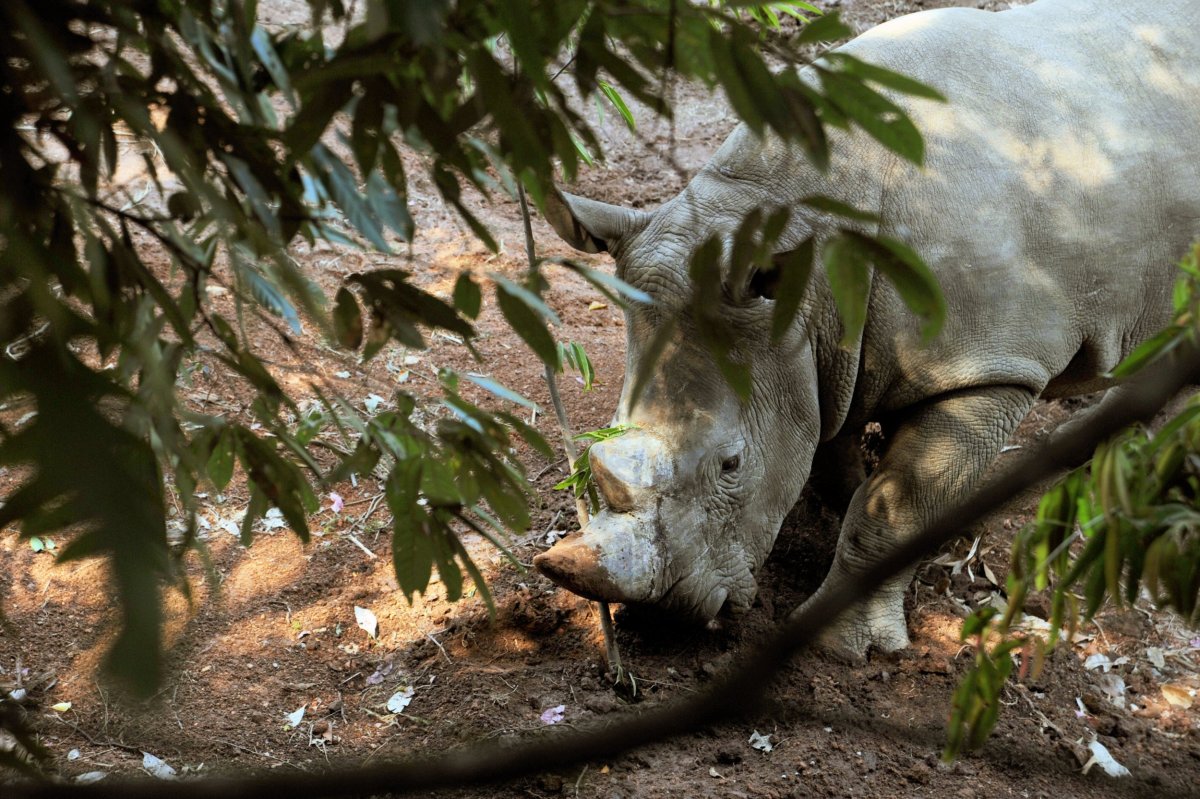Animal conservationists have warned that China's decision to partly reverse a ban on the trading of rhino horn and tiger bone will have "devastating consequences."
It emerged on Monday that Chinese law would now allow domestic trade in tiger bone and rhino horn from captive bred animals for use by sanctioned hospitals offering traditional medicine. As reported by the BBC, China prohibited the trade of rhino and tiger parts back in 1993.
The World Wildlife Fund (WWF) said it was urgently calling on China to maintain its ban on tiger bone and rhino horn trade which, it said, was "critical in conserving these iconic species."
On Twitter, it said the ban should be expanded to cover trade of all tiger parts.
"It is deeply concerning that China has reversed its 25-year-old tiger bone and rhino horn ban, allowing a trade that will have devastating consequences globally", Margaret Kinnaird, WWF's Wildlife Practice Leader, said in a release on Monday, published online.
"Trade in tiger bone and rhino horn was banned in 1993. The resumption of a legal market for these products is an enormous setback to efforts to protect tigers and rhinos in the wild."
We’re urgently calling on China to maintain the 1993 ban on tiger bone and rhino horn trade and to extend it to cover trade in all tiger parts and products.
— World Wildlife Fund (@World_Wildlife) October 29, 2018
A release from China's State Council on Monday confirmed parts from captive animals would be authorized for scientific research, including the collecting of genetic material. It stated that "skin and other tissues and organs of rhinos and tigers" could also be used for public exhibitions.
Rhino horns and tiger bones used for "research or healing" could only be obtained from farmed rhinos and tigers and not those raised in zoos, it added. The Ministry of Culture and Tourism, meanwhile, would now manage sales, import and export of products as "cultural relics."
But the WWF said that even the restricted use of body parts would increase confusion among consumers and "expand the markets" for other tiger and rhino products.
The group said in a second release on Monday that more than 6,500 tigers are believed to live in China's tiger farms, "far outnumbering the roughly 3,900 remaining in the wild."
"China's experience with the domestic ivory trade has clearly shown the difficulties of trying to control parallel legal and illegal markets for ivory," Kinnaird continued.
"Not only could this lead to the risk of legal trade providing cover to illegal trade, this policy will also stimulate demand that had otherwise declined since the ban was put in place," she added. "With wild tiger and rhino populations at such low levels and facing numerous threats, legalized trade in their parts is simply too great a gamble for China to take."
Carter Roberts, the president and chief executive officer (CEO) of the WWF, tweeted on Monday: "China helped lead the charge against the ivory trade, but this news is a step in the opposite direction. Opening legal channels for tiger and rhino products could embolden poachers and black market traders, putting these animals at greater risk in the wild."
Social media users were outraged by the news. "We seem to be going rapidly backwards, rather than forwards," wrote Dr Lauren Gavaghan. "Sad times. We must all stand up to this madness."
Devastating. China reverses 25 year tiger bone/ rhino horn ban - legalising use of captive bred tiger bone and rhino horn in hospitals.
— Dr Lauren Gavaghan (@DancingTheMind) October 30, 2018
We seem to be going rapidly backwards, rather than forwards.
Sad, sad times. We must all stand up to this madness.https://t.co/qYJTPBwse6
David Steen, a wildlife ecologist and conservationalist, tweeted: "I am becoming radicalized."
Science author and journalist David Biello also commented: "This is not controlling the trade in rhino horn and tiger bones, this is China *allowing* the trade in rhino horns and tiger bones."

Uncommon Knowledge
Newsweek is committed to challenging conventional wisdom and finding connections in the search for common ground.
Newsweek is committed to challenging conventional wisdom and finding connections in the search for common ground.
About the writer
Jason Murdock is a staff reporter for Newsweek.
Based in London, Murdock previously covered cybersecurity for the International Business Times UK ... Read more
To read how Newsweek uses AI as a newsroom tool, Click here.








